Serenade Honors Immigrant Anniversary
Pop-up concert marks nearly 70 years since arrival in America.
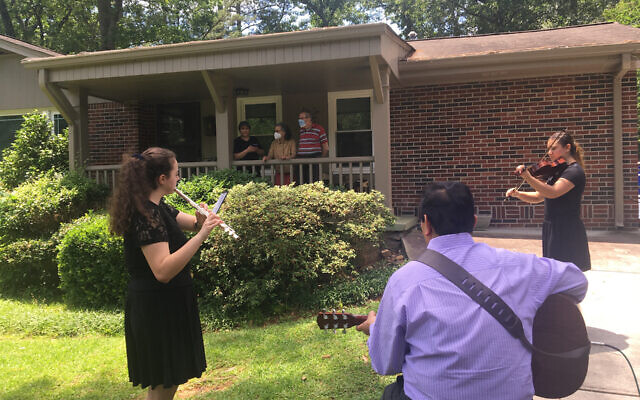
Paula Gris will never forget her first trip to America. It was 1951. She was just 13 and a Holocaust survivor when she, her younger sister and her mother came from Europe on the USS General Stewart, a Navy troop ship that brought displaced persons to America after World War II. It was the music she heard on that ship that made such an impact on her.
“The first song I learned coming over was ‘Oh! Susanna,’ which says, ‘I came from Alabama with my banjo on my knee.’ The GIs on the boat wanted to entertain us and to make us more Americanized before we landed. It’s imprinted in my memory.”
So it was only appropriate that when the Holocaust survivors program at Jewish Family & Career Services wanted to commemorate her arrival in America 69 years ago, they did it with music. But because Paula and her husband Bill are confined to their home during the pandemic and couldn’t drive to the performance, JF&CS brought the music to them.
On a sunshine-filled day earlier this summer, Paula and Bill put on their face masks and stood on their front porch just off Lavista Road in Toco Hills for the concert that the social service agency put together, with proper social distancing, in their driveway.
Gus Garay, who volunteered to play for the couple, provided the music. He remembers “Oh! Susanna,” as well. It was one of the first things he learned to play on the piano when he was six. His mother and father were immigrants too. They came from the Philippines, just before he was born in 1970.
For the pop-up concert in the driveway, he brought along his 15-year-old daughter Liz, who played the viola, and her friend, 17-year-old Julia Johnson and her flute. Music, he believes, is a way of bringing people together. It helps connect young and old, Jew and gentile, a Holocaust survivor and a son of Philippine immigrants.
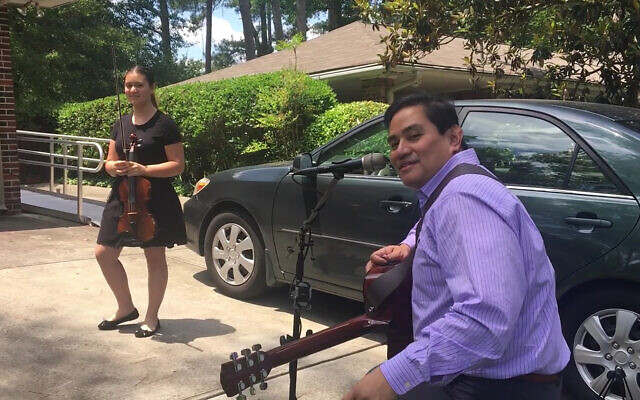
“There’s something quite remarkable about that for us. I’m Catholic. We’re playing for Jewish people. It’s something that connects all of us, you know. And I think it’s something that, particularly in this time, with the pandemic, there’s something that is peaceful or that is uniting about that. I can’t put a value on something like that.”
The music program is part of an effort to bring more human connection to those Holocaust survivors who are unable to leave their homes.
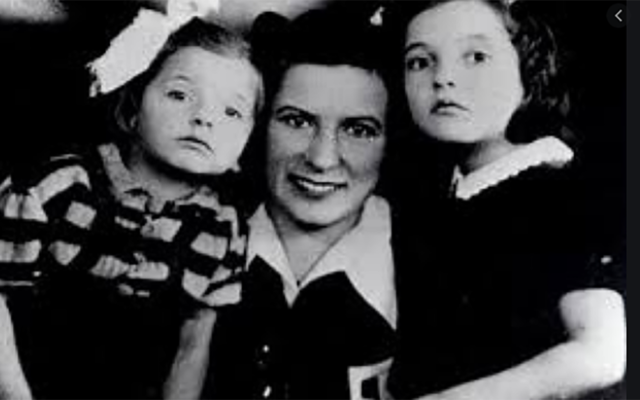
According to Amy Neuman, who manages the Holocaust survivors program at the agency, it’s one way to break the isolation so many of them feel because of a fear of contagion.
“Many of our older survivors don’t have access or don’t have an interest in virtual programing. We feel like the pop-up concert is a little way to bring joy to them. Many survivors are cooped up in their homes. So, we’re trying to think of other ways to let survivors know that we’re thinking of them and help them feel connected to the community.”
For Gris, there wasn’t much music while she was growing up in Romania, where she was born just before the start of World War II in Europe. It was no small miracle that she survived at all, when so many children and adults did not. She was 4 when she and her mother were sent to a slave labor camp in Transnistria in the Ukraine. For two years, she took care of her little sister during the day while her mother worked in a rock quarry to help build roads for the Nazis.
Later, after she came to America, married and settled in Atlanta, she earned an education degree at Georgia State University. She taught for 18 years at the Greenfield Hebrew Academy, now the Atlanta Jewish Academy, and was actively involved in building Congregation Beth Jacob. She has lectured frequently about her experiences, most recently last fall at The Breman Museum.
Her recollections of the war years and her life in America are part of the oral history project at The Breman. In a lengthy interview, the transcript of which is available online, she talked about the gratitude she felt for having come here almost 70 years ago. It was something that was so evident during the concert Garay, his daughter and their friend presented in front of her home in June. “Since I came to America, I don’t think there’s been one day that I have not felt extraordinarily grateful for living in peace, for not being afraid. I say that without exaggeration. The awareness of the blessings of peace have been with me all the time.”



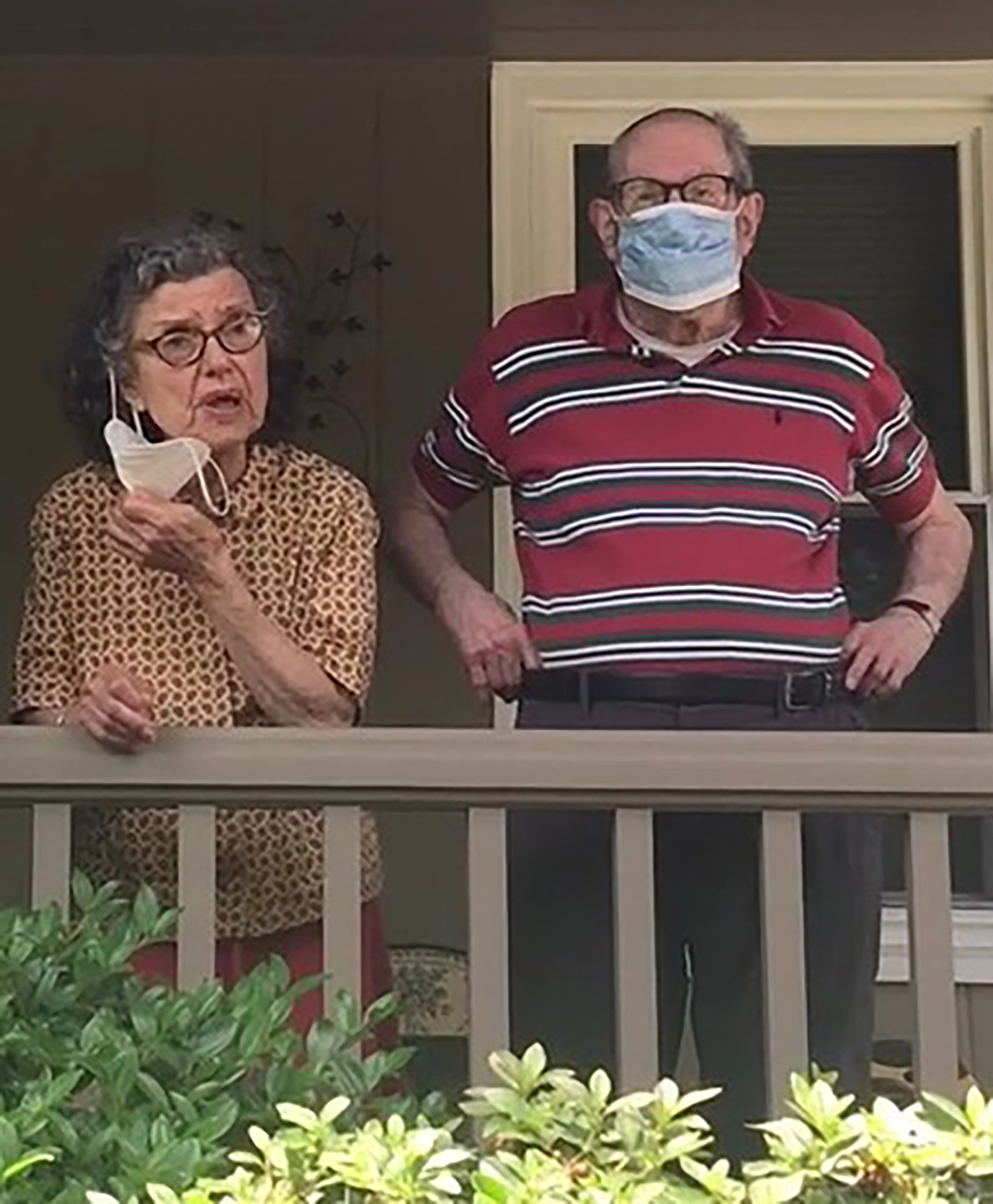
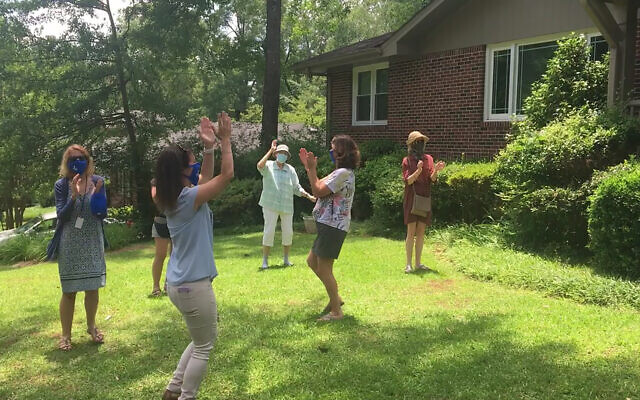
comments